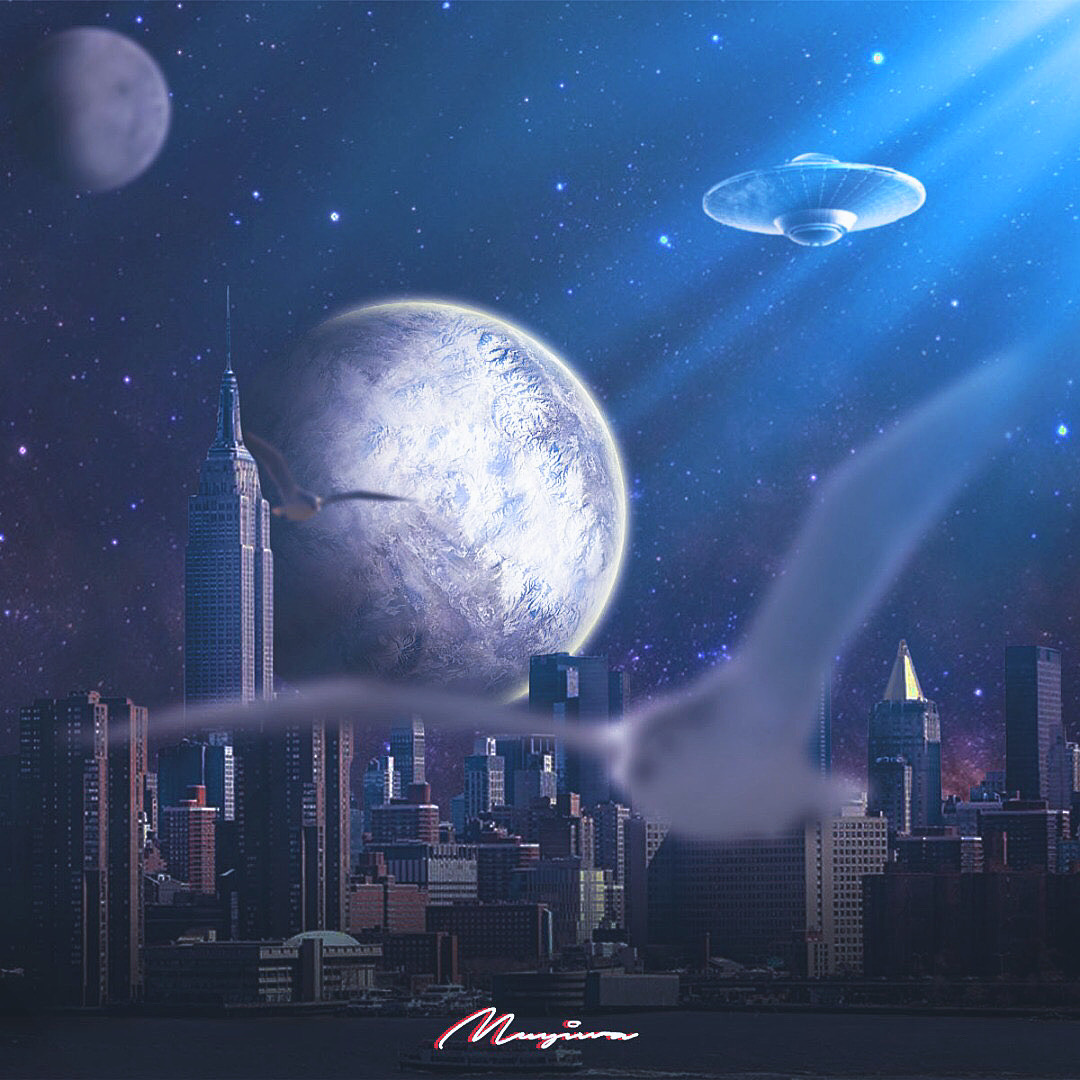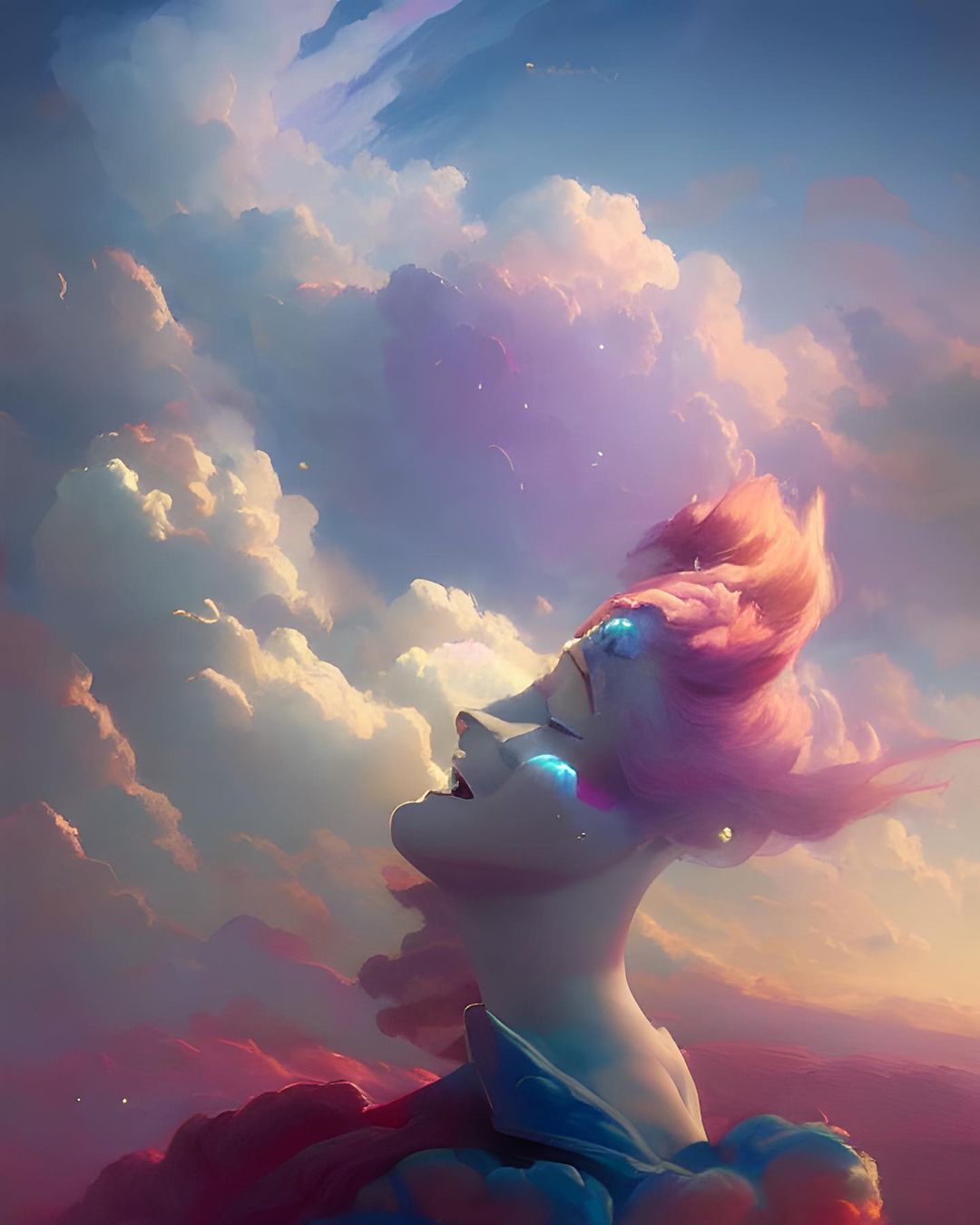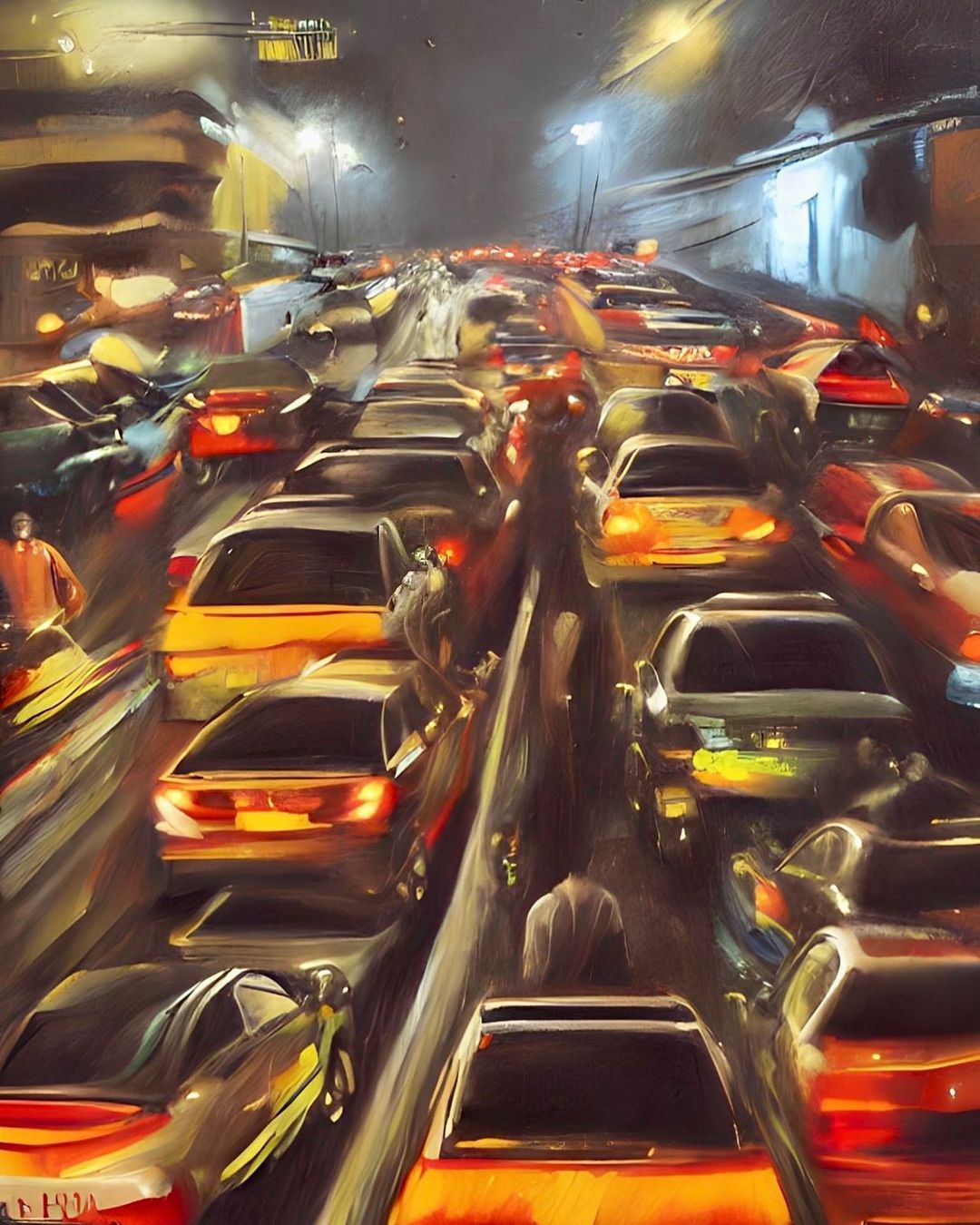NATIVE Exclusive: Muyiwà Akhigbe Is Powering Nigeria’s Imaginative Realism Scene
“The best things go on your mind; the best things are your imagination."
“The best things go on your mind; the best things are your imagination."
When he was 17 years old, Muyiwà Akhigbe discovered he had creativity coursing through his veins. He had just returned home for the holidays from Covenant University, where he studied Computer Engineering. One morning, after sweeping the fallen, brown leaves around his compound into a heap, he was about to discard the debris when he noticed that the heap resembled the shape of a heart.
As a multidisciplinary creative, Muyiwà has fingers in many pies: he is a visual artist, singer and art director. In 2020, he founded the advertising agency Gliitzscape with his friend and music manager Adeola Adepoju. Over six years, Muyiwà has worked with brands like Sterling Bank, UBA, Access Bank, House of Chi, Cîroc, Johnnie Walker, Baileys, Glo, British American Tobacco and REDTV, among others.
For Muyiwà, his childhood days were full of love. The oldest child in a family of four, he grew up as an introvert and had few friends – some at school and others in the church. In school, Muyiwà wasn’t a fast learner. With the benefit of hindsight and some research, he reveals that he suffers from attention-deficit hyperactivity disorder (ADHD).
Muyiwà’s visual art lives on imaginative realism, an art form with its history attached to the Renaissance era, it is a blend of the known and unknown. According to IX Arts, an arts organisation dedicated to promoting popular and critical appreciation of contemporary imaginative realism, it “combines classical painting techniques with postmodern narrative subjects, focusing on the unreal, the unseen, and the impossible, offering visions of humanity’s mythic past, its unexplored future, and, in some cases, the terrifying present.”

Muyiwà’s first encounter with the art form was at an advertising agency where he worked. “[One time] this guy is trying to fuse a flamingo with a giraffe. I was like ‘Okay. I see what he is doing. It’s nice and all that.’ I never had [an] interest [in] it. Until the day I was so bored, and I decided to look for elements. He soon realised that he had created something that was beautiful to behold. “I feel like once I discover something that excites me, I [develop] tunnel vision [toward] it, I just put my head in it. Every day I started creating something. That was how imaginative realism started [for me],” he shares with the NATIVE.
Most of Muyiwà’s works—like ‘Sea Melon,’ ‘Star Scraper,’ ‘Little drops they say…’ and ‘Dive Down Town’—reimagine real-life scenarios and upend reality as we know it. For him, the art form serves as both an escape from the distress of his world and an outlet to push out the thoughts and fantasies that live in his head. Utilising tools such as Photoshop, Akhigbe exerts control over the canvas and constructs the realities he wants or imagines can exist. “We are in a world where everything is capped,” he says. “The best things go on your mind; the best things are your imagination. Won’t it be marvellous to bring some of those things to life? That’s what still driving me till now.”
Muyiwà’s inspiration comes from observing the world around him; he pries open the emotions, moods and situations of the people he encounters in his day-to-day living. Everything he sees on social media and TV and every place he goes to in his travels has the potential to spur his creativity. He is also a diligent follower of various image-sharing platforms—Pinterest, Behance, Ads of the World, Pexels, Unsplash and Shutterstock, to name a few. His foray into visual art began out of necessity: one time, a friend at Covenant University who usually designed the cover arts for his songs was not available; so he reached out to a course mate who had Photoshop in his computer system to put him through the software. The course mate did and with time, Muyiwà perfected the use of the software, setting him on the path of graphic design.

He also owes the birth of Gliitzscape, his advertising agency to another friend Adeola Adepoju. For the longest time, Muyiwà toyed with the idea of setting up an advertising agency but he lacked the courage. It was Adeola who encouraged him to give up his fears and pursue his dreams. Adeola handles the business part of Gliitzscape, which includes an online art gallery they use to curate some of the art the company does. Last year, Muyiwà was invited to EXPO Lagos to showcase some of his artworks and it was an occurrence he considers a big win for him and Adeola’s nascent company. But the biggest challenge, he reveals, is that Gliitzscape operates in a niche sector and that imaginative realism is yet to gain wider acceptance in Nigeria.
“We can say [art] is thriving [in Nigeria] but it can be more if the perception of more Nigerians can change toward art,” he says. “If there are more people to appreciate [art], then that will be a good thing.”
Muyiwà terms his music as an Afro-futurist sound. “[It] is a blend of Western Futuristic sound and also Afrocentric sound,” he tells The PGM Club. “When I mean Western, we are taking elements from EDM, House, and a little bit of their contemporary Pop and fusing it with the Afrocentric theme music that we have.” Under OLMA Records, his independent outfit, he has released four projects—2016’s ‘Dear Music,’ 2018’s collaborative rap mixtape with Nigerian lyricist Rhye Ali ‘Conversations,’ 2019’s ‘My Journey Begins’ and 2020’s collaborative project with Nigerian music producer BankyOnDBeatz ‘Hard Guy.’
“My reason for exploring Afro-futurist music, of which I am still yet to explore it to the fullest, is definitely different from that of the visual art,” he says concerning the connection between his music and imaginative realism works. “I have just reached the point in my life where I don’t want to do anything because it’s a norm. I want to do anything and everything because it is self-edifying. Just like they say, every artist has his or her personality in the art that they create.” Akhigne’s uniqueness lies in his ability to marry all his creative talents: “It’s a very beautiful coincidence – they actually connect. There was a song I did, ‘Out of My System.’ That was like the first song I wanted to use to chart that Afro-futurist scene and the art that I made for it [connect]. All my expressions come from an aligned point of view.”
Interestingly, Muyiwa does not have a favourite visual artist whose style has moulded him. “This might sound funny [but] I follow the art and not the artist,” he says. “And it’s so funny because when it comes to music, I follow the artists [before] I follow the music. Usually, the art draws me in so much and because I am new in this space, I am not very big on art talks and art debates. But in terms of what I have been exposed to, every print ad that I have seen that required imaginative realism, has drawn me in.”
He mentions queer, non-binary, Arab-American artist Ramzy Masri as someone whose works he admires. “He does these things with colours; he is just amazing with colours.” He also mentions a few Nigerian artists who practise imaginative realism—Hannah Durojaiye, Eyitayo Adekoya and Kemi Solaja. “[Imaginative realism] is something that’s already being practised in Europe but it hasn’t yet caught on in Nigeria,” Muyiwà says.

At the moment, Muyiwà is fascinated by AI art. Set on artificial intelligence, which is a field of computer science based on machines that mimic human patterns, AI art is an emerging art form. Muyiwà believes that digital art signals the future of art in the world and that it isn’t a lesser art compared to traditional art. “Art is one. It is many things connected and with the different times and different eras, we’ve seen art transcend,” he says.
“For example, at some point in time horses were the [predominant] mode of transportation. I feel it is the same with art. I don’t think there would be any point in time when a new form [will] replace the other. The most valuable art pieces that we have today are still the ones by the Leonardo da Vinci’s. Art is now very decentralised but still, I don’t think one form of art will take away the glory of another art. All [art forms] are supposed to exist.
For entertainment and relaxation, Muyiwa loves wildlife documentaries, crime documentaries, hanging out with friends and playing games. He acknowledges that the imaginative realism scene in Nigeria is still niche and there is a need for collaboration – a quality that he carries abundantly in his music and hopes to reenact with his visual art.
“Right now, I want to meet other creators and rub minds,” he says. “I can’t do it alone and if I want to get better at what I do, I need to meet with other people who are like-minded. And when the community grows, we can become formidable. While I will always be creating, what I want to do intentionally is meet more artists, especially the ones in this space and see how we can build, because, in the end, life is about community.”
Featured image credits/NATIVE

